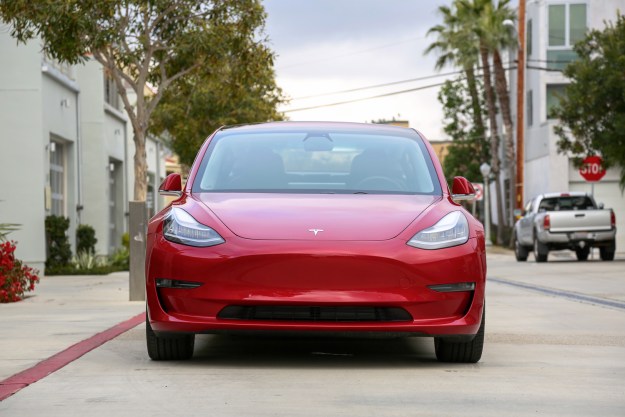When most people talk about using solar energy to power cars, they mean sourcing electricity from solar panels. But a new Dutch company has something different in mind.
Lightyear plans to launch an electric “family car” powered by onboard solar cells. It’s called the Lightyear One, in reference to an estimate that all of the world’s cars travel a combined one lightyear every year. Lightyear wants more of that mileage to be covered by electric cars. However, the company’s sparse website doesn’t offer many details on the proposed solar car.
The advantage of a solar car is being able to recharge on the go from ambient sunlight. Lightyear claims its car will be able to “drive for months without charging” at a conventional plug-in charging station. But solar panels also add cost and weight, and the need to arrange them on the car’s body in a way that maximizes sunlight absorption could also affect things like interior space. The Lightyear One will also have an onboard battery pack, providing a backup for the solar panels but also increasing weight further.
The people behind Lightyear aren’t your average group of entrepreneurs and industrialists. The company was started by former students of Eindhoven University of Technology, which regularly competes in the World Solar Challenge, a biannual event in Australia in which college students from around the world race across the Outback in hand-built solar cars.
In 2013, Eindhoven students set a record in the Cruiser Class, traveling almost 930 miles on a single charge. Cars in this class must resemble family cars, with multiple seats and vaguely-normal looking bodywork. But these purpose-built racers will never be confused with normal cars.
It may have experience with solar power but, like other automotive startups, Lightyear has no experience actually making production cars. In addition, the company hopes to launch its first car on a shoestring budget. Lightyear plans to spend just a “few million euros” on its first production car, a fraction of what established automakers spend to launch new models, according to NLTimes.
Lightyear is currently taking orders for the One, which is priced at 119,000 euros ($135,000). So far, it has a whopping five orders, but hopes to increase that to 200 by next year, and also start production, according to NLTimes.
Editors' Recommendations
- Tesla recalls 130,000 U.S. vehicles over touchscreen safety issue
- The best used cars under $10,000
- The best used cars under $5,000
- Lyft promises all rides will be in electric cars by 2030
- Inside the light-speed race to build a solar-powered commuter car


